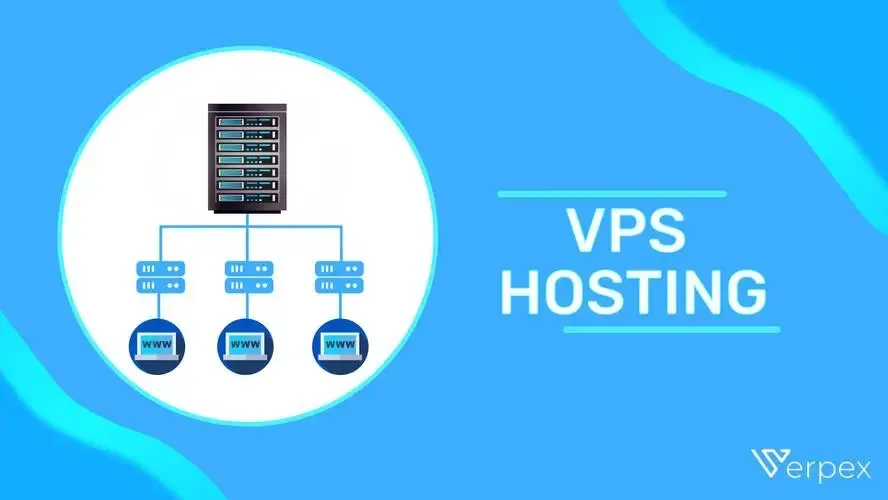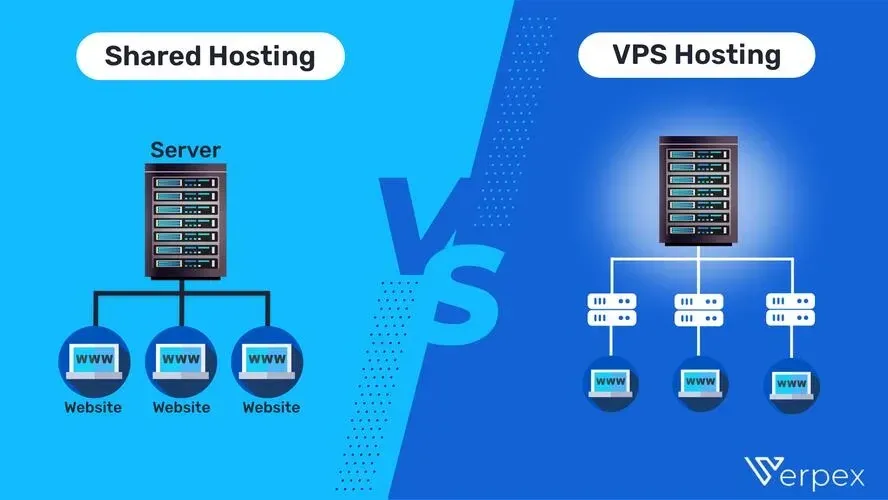VPS hosting stands for Virtual Private Server hosting. It offers a balance between shared and dedicated hosting.
VPS hosting provides a virtual space that acts like a dedicated server but at a lower cost. Each VPS has its own operating system, storage, and bandwidth. This makes it ideal for growing websites that need more resources than shared hosting.
Businesses often use VPS hosting when they outgrow shared hosting but are not ready for a dedicated server. It provides better performance and security compared to shared hosting. This introduction will help you understand VPS hosting and when you should consider using it. Dive in to learn how VPS hosting can support your website’s needs as it grows.
Introduction To Vps Hosting
In the world of web hosting, choosing the right type is crucial. If your website is growing, you need a reliable hosting option. VPS hosting could be the solution. But what is VPS hosting? And when should you use it? Let’s explore this in detail.
What Is Vps?
VPS stands for Virtual Private Server. It’s a type of hosting that uses virtualization technology. It provides you with dedicated resources on a server with multiple users. Think of it as having your own private space on a server.
VPS hosting gives you more control and flexibility. You get your own operating system, storage, and bandwidth. It’s similar to having your own dedicated server but at a lower cost.
How Vps Differs From Other Hosting
Shared hosting is the most basic type. In shared hosting, many websites share the same server resources. This can lead to slow performance if one site uses too much.
Dedicated hosting offers a whole server for one website. It’s powerful but expensive. It’s best for very large websites with high traffic.
VPS hosting sits in the middle. It’s more powerful than shared hosting but less costly than dedicated hosting. It offers a balance of performance and cost. You get a virtual server with dedicated resources, leading to better performance.
With VPS, you have more control over your environment. You can install and configure software to meet your needs. This is not possible with shared hosting.
Benefits Of Vps Hosting
VPS (Virtual Private Server) hosting offers various benefits that make it a popular choice for many website owners. Below, we will explore some of the key advantages of VPS hosting.
Enhanced Performance
VPS hosting provides dedicated resources. This means your website has its own CPU, RAM, and storage. It doesn’t share these resources with other websites. This results in faster load times and better overall performance.
With a VPS, you get better stability and reliability. Unlike shared hosting, where other websites can affect your site’s performance, a VPS ensures that your site’s performance remains consistent.
Greater Control
VPS hosting gives you full root access. This means you have complete control over your server’s settings and configurations. You can install any software you need, customize your server environment, and manage security settings as you see fit.
Having more control allows for better optimization. You can tailor the server to meet your website’s specific needs, improving efficiency and functionality. This level of control is not available with shared hosting.
In summary, the enhanced performance and greater control provided by VPS hosting make it an excellent choice for growing websites. These benefits help ensure your site runs smoothly and efficiently.
Types Of Vps Hosting
Understanding the types of VPS hosting can help you choose the right service for your needs. There are two main types: Managed VPS and Unmanaged VPS. Each offers unique benefits and caters to different levels of technical expertise.
Managed Vps
Managed VPS hosting provides a hands-off approach. The hosting provider takes care of server maintenance, updates, and security. This option suits those who lack technical skills or time. It allows you to focus on your website’s content and growth.
With Managed VPS, you get expert support. Any issues or questions can be resolved quickly by the hosting provider. This can save you stress and time. Managed VPS often includes automated backups and monitoring. This ensures your site runs smoothly and stays secure.
Unmanaged Vps
Unmanaged VPS hosting offers more control and flexibility. You handle all server management tasks. This includes software updates, security, and troubleshooting. Unmanaged VPS is ideal for those with technical skills or a dedicated IT team.
This option can be more cost-effective. Without managed services, the price is usually lower. You can customize your server environment to meet specific needs. This makes Unmanaged VPS suitable for developers and experienced users.

Credit: verpex.com
When To Choose Vps Hosting
When deciding if VPS hosting is right for your website, consider its unique benefits. VPS stands for Virtual Private Server. It offers more control, flexibility, and resources compared to shared hosting. Here are some key scenarios to help you determine if VPS hosting is the right choice for you.
Growing Website Needs
As your website grows, it demands more resources. Shared hosting may not meet these needs. A VPS provides dedicated resources. This ensures your site performs well even with increased demands.
- More storage space for files and databases.
- Better performance with dedicated CPU and RAM.
- Enhanced security features to protect your data.
With a VPS, you can install custom software. You can also configure server settings to suit your specific requirements. This level of control is crucial for growing websites.
Increased Traffic
High traffic can slow down a website on shared hosting. If your site is experiencing traffic spikes, consider a VPS.
| Shared Hosting | VPS Hosting |
|---|---|
| Limited resources shared with others | Dedicated resources for your site |
| Possible slowdowns during traffic peaks | Stable performance even with high traffic |
A VPS ensures your website remains fast and responsive. This is crucial for maintaining user satisfaction and search engine rankings.
Consider VPS hosting if you anticipate further growth and traffic. It offers the scalability and reliability your site needs to thrive.
Setting Up Vps Hosting
Setting up VPS hosting might seem daunting, but it’s simpler than you think. Follow these steps to get your VPS up and running quickly.
Choosing A Provider
First, you need to choose a VPS hosting provider. Consider these factors when making your choice:
- Performance: Look for providers with high uptime and fast servers.
- Support: Ensure they offer 24/7 support.
- Scalability: Choose a provider that allows you to upgrade easily.
- Pricing: Compare plans to find one that fits your budget.
| Provider | Performance | Support | Pricing |
|---|---|---|---|
| Provider A | High | 24/7 | $$ |
| Provider B | Medium | 24/7 | $ |
| Provider C | High | Business hours | $$$ |
Initial Configuration
After choosing your provider, it’s time to configure your VPS. Follow these steps:
- Access the control panel: Use the login details provided by your host.
- Update the OS: Ensure your operating system is up-to-date.
- Set up a firewall: Protect your server from unauthorized access.
- Install necessary software: Add applications like web servers, databases, etc.
- Create user accounts: Set up users with appropriate permissions.
Let’s break down these steps in more detail:
Access the control panel: Most providers offer a web-based control panel. Log in using the credentials provided. This panel helps you manage your server easily.
Update the OS: Run system updates to keep your server secure. Use commands like sudo apt-get update and sudo apt-get upgrade for Ubuntu.
Set up a firewall: Use tools like UFW (Uncomplicated Firewall) to block unwanted traffic. For example, run sudo ufw enable to activate it.
Install necessary software: Depending on your needs, you might install a web server (e.g., Apache), a database (e.g., MySQL), or other applications.
Create user accounts: Use commands like adduser to create new users. Assign appropriate permissions to ensure security.
By following these steps, you’ll have your VPS hosting ready for action in no time.
Common Uses For Vps Hosting
When it comes to web hosting, VPS (Virtual Private Server) hosting stands out as a versatile choice. It offers a middle ground between shared hosting and dedicated hosting. VPS hosting provides dedicated resources and increased control, making it suitable for various applications. Here are some common uses for VPS hosting:
Hosting Multiple Websites
VPS hosting is ideal for hosting multiple websites. It allows you to manage multiple domains from a single server. This is particularly useful for developers and businesses with several websites.
With a VPS, you get dedicated resources like CPU, RAM, and storage. This ensures that each website operates smoothly without performance issues. You can also configure your VPS to meet the specific needs of each website. This flexibility makes VPS hosting a popular choice for webmasters.
Running Custom Applications
Another common use for VPS hosting is running custom applications. Many businesses need specialized software that shared hosting can’t support. With a VPS, you have the freedom to install and run any application you need.
VPS hosting provides root access, allowing you to customize the server environment. This is essential for running complex applications that require specific server configurations. Whether it’s a custom-built web app or a resource-intensive software, a VPS can handle it.
Below is a table summarizing the benefits of using VPS hosting for different purposes:
| Use Case | Benefits |
|---|---|
| Hosting Multiple Websites | Dedicated resources, better performance, easy management |
| Running Custom Applications | Root access, customizable environment, support for complex apps |
In summary, VPS hosting offers a balance of control, performance, and flexibility. It is ideal for hosting multiple websites and running custom applications. This makes it a preferred choice for many users.
Challenges And Considerations
When choosing VPS hosting, it is important to consider several challenges and considerations. These factors can influence your decision and ensure you make the best choice for your website or business needs.
Technical Knowledge Required
VPS hosting demands a certain level of technical knowledge. Users must manage their own servers. This includes tasks such as:
- Installing software
- Configuring settings
- Handling security measures
If you lack technical skills, this could be challenging. It may require hiring a professional or learning new skills. This can add complexity to your hosting experience.
Cost Implications
VPS hosting is more expensive than shared hosting. The cost reflects the resources and control provided. Here is a comparison table:
| Hosting Type | Cost Range |
|---|---|
| Shared Hosting | $2 – $10/month |
| VPS Hosting | $20 – $100/month |
While VPS hosting offers better performance, it comes at a higher price. Evaluate your budget to determine if VPS hosting fits your financial situation. Consider the value of the benefits you receive for the extra cost.

Credit: www.accuwebhosting.com

Credit: verpex.com
Frequently Asked Questions
What Is Vps Hosting?
VPS hosting stands for Virtual Private Server hosting. It offers a virtualized server environment. It provides dedicated resources on a shared server. This hosting is more reliable and secure than shared hosting.
When Should You Use Vps Hosting?
You should use VPS hosting when you need more control and customization. It’s ideal for websites with high traffic. It’s also suitable for businesses that require better performance and security.
How Does Vps Hosting Work?
VPS hosting works by dividing a physical server into multiple virtual servers. Each VPS operates independently. It has its own operating system and resources. This ensures better performance and reliability.
Is Vps Hosting Better Than Shared Hosting?
Yes, VPS hosting is better than shared hosting. It offers more dedicated resources. It provides better security and performance. It’s also more customizable and scalable.
Conclusion
VPS hosting offers flexibility and control. It’s ideal for growing websites. Shared hosting may not suffice as traffic increases. VPS provides better performance and security. It’s a cost-effective solution. Consider VPS for e-commerce, large blogs, and resource-heavy sites. Ensure you assess your needs.
Choose VPS when ready for more power. Happy hosting!